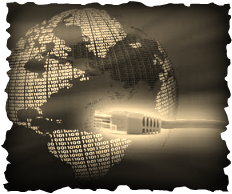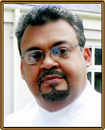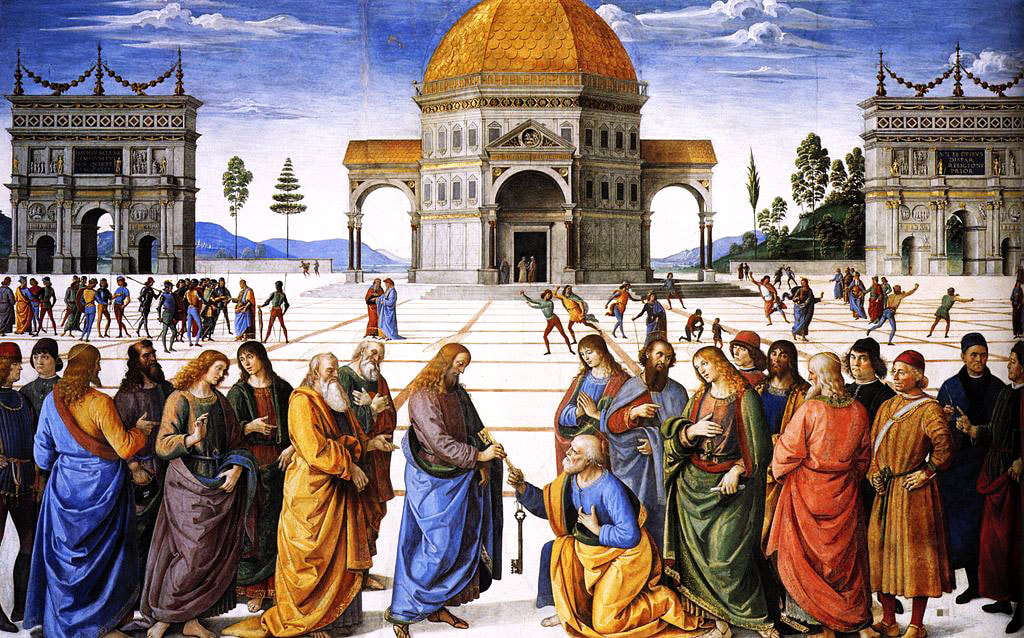 On 1/24/2011 Pope Benedict delivered his message for World Communications Day entitled 'Truth, Proclamation and Authenticity of Life in the Digital Age'. I've found that His Holiness' message resonated well with the thoughts of my previous blog 'Friend, Unfriend, Refriend' written exactly one week earlier. Pope Benedict was using this year's WCD as an opportunity to address issues of humanity in the realm of technology and in patricular "the emergence of the internet as a network for communication"... Pope Benedct said the:
"communication appears not only as an exchange of data, but also as a form of sharing. This dynamic has contributed to a new appreciation of communication itself, which is seen first of all as dialogue, exchange, solidarity and the creation of positive relations. On the other hand, this is contrasted with the limits typical of digital communication: the one-sidedness of the interaction, the tendency to communicate only some parts of one's interior world, the risk of constructing a false image of oneself, which can become a form of self-indulgence". In my previous blog I had spoken of using Facebook as a 'mask', one which hides the true self and/or projetcs a false image. In reading the Popes message I have asked myself 'Do my posts reflect who I am, who I want to be or simply who I want you to percieve me as, or all of the above?' It is far easier to do this in the digital world because the contact is not in person. He also stated: "Entering cyberspace can be a sign of an authentic search for personal encounters with others, provided that attention is paid to avoiding dangers such as enclosing oneself in a sort of parallel existence, or excessive exposure to the virtual world. In the search for sharing, for "friends", there is the challenge to be authentic and faithful, and not give in to the illusion of constructing an artificial public profile for oneself.The new technologies allow people to meet each other beyond the confines of space and of their own culture, creating in this way an entirely new world of potential friendships. This is a great opportunity, but it also requires greater attention to and awareness of possible risks. Who is my "neighbour" in this new world? Wow! What do I owe my neighbor but to 'friend' or 'refriend', love and forgiveness? 'unfriend' simply has no place in the Christian world. Cyberspace may be near-limitless in size and scope but it does bring all who I connect with into the narrow limits of being my neghbor. The Pope invites us all: I would like then to invite Christians, confidently and with an informed and responsible creativity, to join the network of relationships which the digital era has made possible. This is not simply to satisfy the desire to be present, but because this network is an integral part of human life. The web is contributing to the development of new and more complex intellectual and spiritual horizons, new forms of shared awareness. In this field too we are called to proclaim our faith that Christ is God, the Saviour of humanity and of history, the one in whom all things find their fulfilment (cf. Eph 1:10). The proclamation of the Gospel requires a communication which is at once respectful and sensitive, which stimulates the heart and moves the conscience; one which reflects the example of the risen Jesus when he joined the disciples on the way to Emmaus (cf. Lk 24:13-35). But he warns: It is important always to remember that virtual contact cannot and must not take the place of direct human contact with people at every level of our lives. Digital media is another tool in proclaiming the Gospel that Pope Benedict encourages us to use but he leaves us some wise caveats: The task of witnessing to the Gospel in the digital era calls for everyone to be particularly attentive to the aspects of that message which can challenge some of the ways of thinking typical of the web. First of all, we must be aware that the truth which we long to share does not derive its worth from its "popularity" or from the amount of attention it receives. We must make it known in its integrity, instead of seeking to make it acceptable or diluting it. It must become daily nourishment and not a fleeting attraction. The truth of the Gospel is not something to be consumed or used superficially; rather it is a gift that calls for a free response. Even when it is proclaimed in the virtual space of the web, the Gospel demands to be incarnated in the real world and linked to the real faces of our brothers and sisters, those with whom we share our daily lives. Direct human relations always remain fundamental for the transmission of the faith! I invite you to read his full message here and share your thoughts on his meassage on how we should communicate and relate the truth of the Gospel: http://catholic.org/international/international_story.php?id=40064&page=1 Peace.
0 Comments
Leave a Reply. |

Hi, welcome to my weekly blog. I'm deacon Michel and I love blogging and the healthy exchange of constructive ideas. Now my mind has been known to wander on a million different things all at once so don't be surprised at what you find here. I often scratch my head and go 'Huh?' at my own thoughts. Feel free to leave a comment and share your thoughts with me.
DisclaimerThis blog reflects MY ongoing Christian journey: insights gained through the Holy Spirit, my experiences, my studies, my relationships. The content of this website is solely that of Deacon Michel du Chaussee, and does not represent the Archdiocese of Miami or any other entity of the Roman Catholic Church in any official capacity. Needless to say, I hope that none of my writings are contrary to the doctrines of faith and morals that are reflected in Sacred Tradition or as taught and guarded by the Magisterium of the Church or to the truths of God as revealed in the Holy Scriptures.
For I take seriously what a very wise man has often said to me: "Ordination is not license for private practice" - Msgr. A. Andersen Archives
November 2018
Categories |

 RSS Feed
RSS Feed